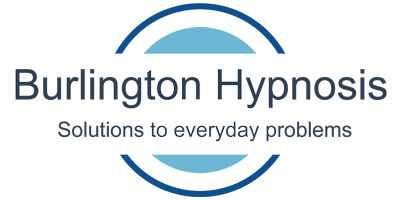Research: Surgical wounds heal faster with hypnosis
Marie McBrown was invited to test whether or not hypnosis would help heal the scars from her breast surgery. Marie (not her real name) and 17 other women underwent surgery to reduce their breast size.
It’s a common operation for women whose breasts are large enough to cause back and shoulder strain, interfere with routine tasks, or prompt social and psychological problems. The pain and course of healing from such surgery is well-known, and a team of researchers headed by Carol Ginandes of Harvard Medical School and Patricia Brooks of the Union Institute in Cincinnati wanted to determine if hypnosis could speed wound healing and recovery.
“Hypnosis has been used in Western medicine for more than 150 years to treat everything from anxiety to pain, from easing the nausea of cancer chemotherapy to enhancing sports performance,” Ginandes says. A list of applications she provides includes treatment of phobias, panic, low self-esteem, insomnia, sexual dysfunction, stress, smoking, colitis, warts, headaches, and high blood pressure.
“All these functional uses may help a person feel better,” Ginandes continues. “I am also interested in using hypnosis to help people get better physically. That means using the mind to make structural changes in the body, to accelerate healing at the tissue level.”
Four years ago, Ginandes and Daniel Rosenthal, professor of radiology at the Harvard Medical School, published a report on their study of hypnosis to speed up the mending of broken bones. They recruited 12 people with broken ankles who did not require surgery and who received the usual treatment at Massachusetts General Hospital in Boston.
In addition, Ginandes hypnotized half of them once a week for 12 weeks, while the other half received only normal treatment. The same doctor applied the casts and other care, and the same radiologists took regular X-rays to monitor how well they healed. A radiologist who evaluated the X-rays did not know which patients underwent hypnosis.
The result stood out like a sore ankle. Those who were hypnotized healed faster than those who were not. Six weeks after the fracture, those in the hypnosis group showed the equivalent of eight and a half weeks of healing.
How to Hypnotize
Not everyone is convinced by the results. Some experts claim that the differences can be explained by the extra attention — the increased psychological support — given to the hypnotized patients. So when she was ready to try hypnosis again on 18 breast surgery patients, Ginandes randomly separated them into three groups. All got the same surgical care by the same doctors. Six received standard care only, six also received attention and support and from a psychologist, and six underwent hypnosis before and after their surgery.
Hypnosis sessions occurred once a week for eight weeks. Psychological soothing took place on the same schedule. Ginandes did not put the patients to sleep by swinging a watch like a pendulum while the patients lay on a couch. “That only happens in the movies,” she laughs. “In hypnosis, people don’t lose control and go into a zombie-like state where they can be made to do things against their will. They don’t have to lie down, you can enter a state of hypnosis standing up, even standing on your head. Patients don’t even go to sleep, rather, they enter a state of absorbed awareness, not unlike losing oneself in a good book or favorite piece of music.”
While in this state, Ginandes offered suggestions that were custom-tailored to different stages of surgery and healing, Before surgery, the suggestions emphasized lessening pain and anxiety. “You can even suggest to a patient that she can reduce bleeding during surgery by controlling her blood flow,” Ginandes notes. Overall, the suggestions focused on things such as expectation of comfort, decreased inflammation, diminished scar tissue, accelerated wound healing, return to normal activities, and adjustments to self-image.
The women received audio tapes of these sessions so they could practice at home. At one week and seven weeks after surgery, nurses and doctors participating in the study visibly assessed and measured the wounds of all three groups without knowing which group the women were in.
They took digital photographs for three physicians to review. Each patient also rated her own healing progress and how much pain she felt on scales of zero to 10. The result was clear. MarieMcBrown and the women who had undergone hypnosis healed significantly faster than the others. Those who received supportive attention came in second.
From hooey to hurrah
The researchers reported these results in the April issue of the American Journal of Clinical Hypnosis. This report, of course, doesn’t prove conclusively that hypnosis will accelerate the healing of wounds. The biggest limitation of the study involves the small number of patients, which makes it difficult to generalize the results to other types of wounds.
Then there is the possible effect of expectation, the belief of some patients that hypnotism will work. It’s the same effect seen when people who take a sugar pill for a backache do as well as people who take medicine. It’s going to require more studies involving many more people to get the majority of doctors to shout hurrah instead of hooey.
Ginandes agrees. “Our study underscores the need for further scientific testing of hypnosis,” she says. “Subsequent studies might clarify unresolved speculations about the mechanisms by which hypnotic suggestion can trigger the physical and psychological effects that we see.”
She and her colleagues suggest future experiments to compare the effects of simple hypnotic relaxation versus “targeted suggestions for tissue healing.” They would also like to see more work done using hypnosis for people suffering from other kinds of wounds, such as foot ulcers caused by diabetes.
Nevertheless, Ginandes believes that the study of healing after breast surgery “breaks the ground for studying a broad and exciting range of new adjunctive treatments. Since clinical hypnosis is a noninvasive, nondrug treatment, finding that it can speed healing of wounds and other conditions could lead to fewer visits to doctors’ offices and faster return to normal activities. Also, further investigation might confirm our supposition that the mind can influence healing of the body.”
By: William J. Cromie









